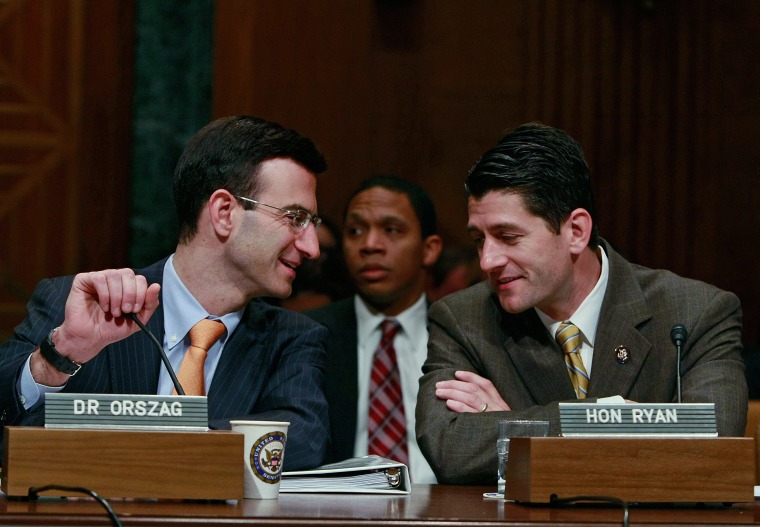The United States is likely to have bruising budget deficits over the next decade, President-elect Barack Obama's nominee to head the White House budget office said Tuesday.
Peter Orszag, designated by Obama to run the Office of Management and Budget, told the Senate Budget Committee to expect budget deficits equaling 5 percent of the size of the economy for the next five or ten years. That would mean deficits of $750 billion or so over the next couple of years and steadily exceeding $1 trillion by the end of the next decade.
That's a significant jump from those recently experienced and represent levels that have always in the recent past prompted painful deficit control efforts.
Orszag said a long-term goal of the incoming administration is fiscal restraint to prevent even worse deficits that will largely result from inflation in the health care sector and its effects of Medicare and Medicaid.
Current projections see a deficit for the ongoing budget year exceeding $1 trillion — and that's before enactment of Obama's $800 billion or so economy recovery plan. The Congressional Budget Office predicts a $1.2 trillion deficit for 2009, about 8 percent of gross domestic product.
Orszag gave Budget Committee panel members few details on the composition of the emerging economic recovery bill, and he predicted that even with speedy enactment of the plan, unemployment will hit 8 percent later this year.
"In the short run, the most pressing challenge is to jump-start the economy out of the worst economic crisis since the Great Depression," Orszag testified Tuesday. "Over the longer run, a key challenge is putting the budget on a more sustainable course."
In the past, the prospect of sustained deficits in the range of 5 percent of GDP — or even less — have prompted past administrations and Congresses to embark on painful budget control efforts such as those experienced in the 1980s under President Reagan and former President Bush's 1990 plan in which he broke his famous "read my lips. No new taxes" promise.
And President Clinton's tax-heavy 1993 deficit cutting plan helped contribute to the Democrats' drubbing in the 1994 elections.
"That's not acceptable, and it's not sustainable," Sen. Judd Gregg of New Hampshire, top Republican on the budget panel, said of the huge deficits. "We're digging a very, very deep hole that's going to be hard to get out of."
Budget Committee Chairman Kent Conrad, D-N.D., said he hopes Orszag will win a unanimous Senate vote on Inauguration Day.
Orszag, recently the director of the Congressional Budget Office, said the long-term threat to the economy are the spiraling budget deficit and out-of-control inflation in the health care sector.
